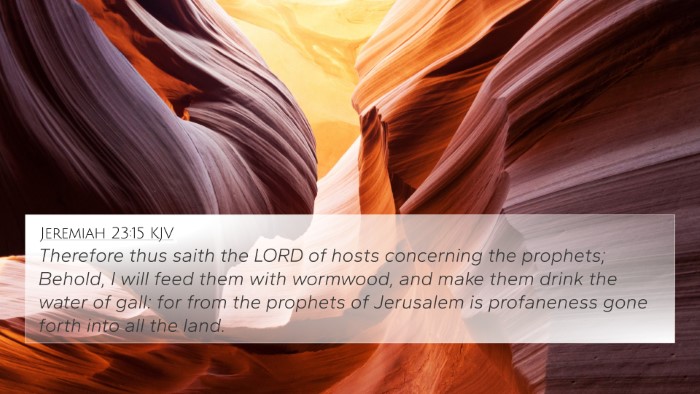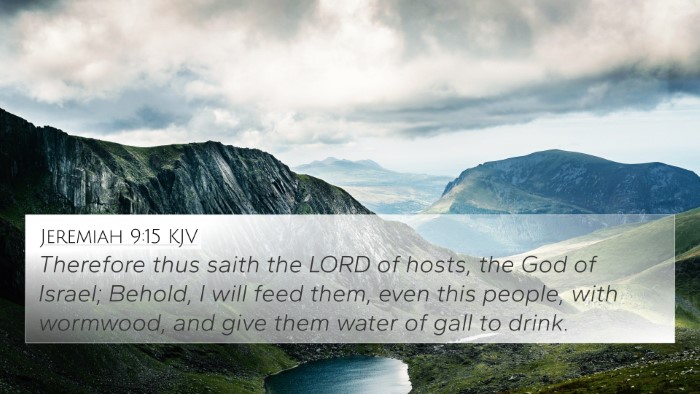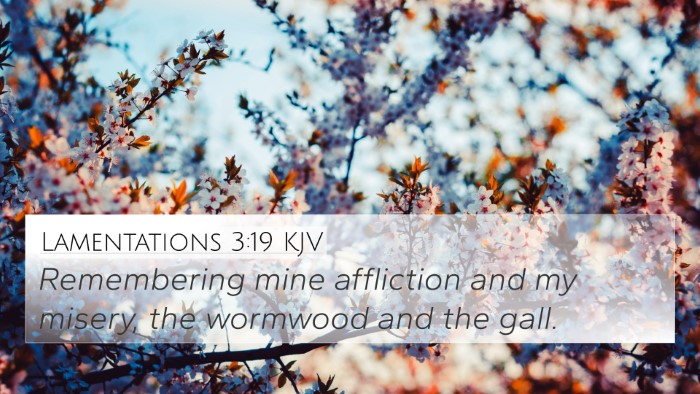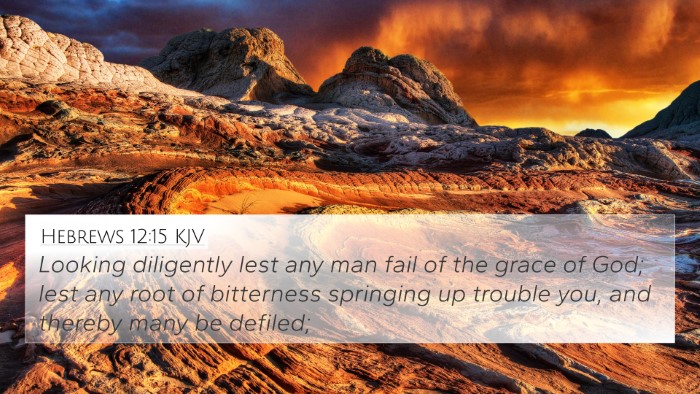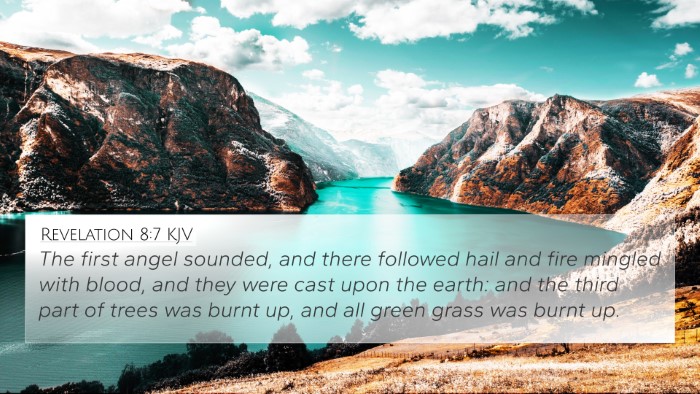Understanding Revelation 8:11
Revelation 8:11 states: "And the name of the star is called Wormwood: and the third part of the waters became wormwood; and many men died of the waters, because they were made bitter."
This profound verse speaks within the broader apocalyptic context of the Book of Revelation. To gain a deeper understanding, let’s explore insights from respected public domain commentaries by Matthew Henry, Albert Barnes, and Adam Clarke.
Verse Meaning and Commentary Insights
The verse mentions a star named "Wormwood," which symbolizes bitterness and calamity, suggesting the devastating consequences of sin and divine judgment.
Matthew Henry's Commentary
Matthew Henry emphasizes the significance of "Wormwood," connecting it to the idea of judgment. He interprets this "star" as a judgment of God that turns fresh waters—representing life and sustenance—into poisonous substances. Henry illustrates how this act serves as a metaphor for the spiritual bitterness that sin introduces into the world.
Albert Barnes' Commentary
Albert Barnes describes the transformations brought forth in this verse, noting that the name "Wormwood" (Greek: "apsinthon") indicates the extreme bitterness and sorrow associated with these judgments. He suggests that this symbolizes the spiritual death that arises from turning away from God, leading many to suffer greatly as represented by their deaths from the poisoned waters.
Adam Clarke's Commentary
Adam Clarke also notes the imagery of "Wormwood" within the Old Testament context, drawing connections to verses in Jeremiah 9:15 and Lamentations 3:15. He elaborates on the consequences of spiritual decay, where the waters turning bitter signifies the need for repentance and a return to God. Clarke points out that this transformation serves to remind the readers of the dangers of neglecting divine authority.
Cross-References Related to Revelation 8:11
- Jeremiah 9:15: “Therefore thus saith the Lord of hosts, the God of Israel; Behold, I will feed them, even this people, with wormwood, and give them water of gall to drink.”
- Amos 5:7: “O ye who turn judgment to wormwood, and leave off righteousness in the earth.”
- Lamentations 3:15: “He hath filled me with bitterness, he hath made me drunken with wormwood.”
- Proverbs 5:4: “But her end is bitter as wormwood, sharp as a two-edged sword.”
- Luke 16:8: “And the lord commended the unjust steward, because he had done wisely: for the children of this world are in their generation wiser than the children of light.”
- Hebrews 12:15: “Looking diligently lest any man fail of the grace of God; lest any root of bitterness springing up trouble you, and thereby many be defiled;”
- Revelation 10:9-10: “And I went unto the angel, and said unto him, Give me the little book. And he said unto me, Take it, and eat it up; and it shall make thy belly bitter, but it shall be in thy mouth sweet as honey.”
- Revelation 16:4: “And the third angel poured out his vial upon the rivers and fountains of waters; and they became blood.”
- Exodus 7:17: “Thus saith the Lord, In this thou shalt know that I am the Lord: behold, I will smite with the rod that is in mine hand upon the waters which are in the river, and they shall be turned to blood.”
- Deuteronomy 29:18: “Lest there should be among you man, or woman, or family, or tribe, whose heart turneth away this day from the Lord our God, to go and serve the gods of these nations; lest there should be among you a root that beareth gall and wormwood;”
Thematic Connections to Other Bible Verses
This verse serves as a crucial point of connection within the themes of divine judgment and the consequences of spiritual bitterness. In the context of inter-Biblical dialogue, Revelation 8:11 illustrates God’s ongoing warnings throughout Scripture regarding the gravity of sin.
Revelation 8:11’s dire implications reflect broader Biblical themes seen in both the Old and New Testaments, reinforcing the idea of God's justice and the portrayal of life-giving elements being transformed into instruments of death due to disobedience.
Conclusion
Revelation 8:11 exemplifies the profound depths of divine messages concerning human actions and consequences. Cross-referencing this verse with others highlights a consistent narrative of God's judgment and warnings throughout Scripture. Through tools for Bible cross-referencing and cross-reference Bible study methods, one can uncover connections that yield greater understanding of Biblical teaching and themes, providing a path for deeper spiritual reflection.



